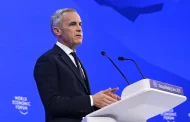So, a few but significant number of readers do not trust that someone such as Attahiru Jega is secure from misrepresentation in Intervention? How do we know that they do not trust that a Jega is safe with Intervention? Well, the number of spoken and unspoken rejoinders to Intervention’s piece on what Jega presented at the Media Trust Dialogue on January 22nd, 2021 is the evidence. There has been an official rejoinder to the said piece on Jega. That is, official to the extent that the particular rejoinder represents Prof Jega’s worry that there must be a problem if Intervention’s The Jega Lens on Restructuring is a correct reflection of what he presented at the Trust Dialogue. But there are the unofficial rejoinders on the review of the Jega presentation, which came from people Jega may not even know.
The most interesting of them all must be the quotation from some speech or lecture by Jega days gone by which the sender appears to be saying: “In case you missed it, (ICYMI), here is Jega on corruption. It goes like this: “We have a lot to do; and the first thing to do is to get it right by securing the mindset of our politicians from selfishness, greed and reckless banditry. Actually, many of them are also bandits, not just those who stand by the roadside with AK 47. To steal recklessly from government’s coffers and turn hundreds, if not millions of people into poverty, deny children the opportunity to go to school because they have stolen the money that would have gone into education or was supposed to buy arms and ammunition for the military, to the extent that they can no longer fight banditry, that is banditry itself.” And so on and so forth because there is no space to take all the spoken and unspoken protesters.
It is good for the Bayero University, Kano professor of political economy. It means that if he were to venture into electoral politics, he would not have to spend money to get genuine, silent voters.
But the Jega loyalists should relax. The professor is not under attack. He is only being challenged to, along with other members of the elite who, in time, have risen to embody popular aspiration, to raise the bar much, much higher than where it is now. And that is for the good reason that the Nigerian Exceptionalism is not going to be possible at the current level of abstraction of the plausible answers. This challenging is not just to Jega, having started with Prof Jibrin Ibrahim, activist groups and it goes automatically to all who have acquired the power of voice: Pat Utomi, Hakeem Baba Ahmed, Attahiru Jega, Bishop Mathew Kukah and the host of them who can contribute to a high minded framing of the goal post beyond the pedestrianism of everyday commentators.
This position takes into consideration Bolaji Akinyemi’s point in his Farewell to policy address in 1983, amongst others, that Nigeria should be to Africans/blacks what Israel is to the Jews. Many people would not like Nigeria to be modeled after Israel but the logic of the comparison comes clear. The question is how Nigeria might be able to do for Africans what Israel is doing for the Jews if it is fighting over the rights of cows to be taken up and down the country? Herdsmen crisis is a crisis of underdevelopment, not of identity or difference. It is its interpretation as Fulani agenda of expansionism that has made it a crisis of identity and subsequently a crisis of the national question. Otherwise, the violence itself is better understood as a marker of Nigeria’s unique underdevelopment. If so, why is the debate not the state that can pursue rapid transformation to a level where some of these issues causing national headache would wither away? Any country whose agricultural system still permits carrying cows up and down in the 21st century is simply a unique case of backwardness and underdevelopment. Do they have herdsmen crisis of the type Nigeria is having in Australia, Argentina, Brazil, South Africa, Namibia and the whole of Europe where much more qualitative cows are produced, traded and consumed? Talking of the possibility of a state that can do that is what only a core of developmentalists seizing the high ground can bring about, hence the importance of the framing of the current crisis by the layer of elite mentioned above. And hence the importance of the kind of consensus that is developing among that layer in the attempt at resolving the current crisis.
Reading and reviewing Jega’s presentation at the Dialogue was, therefore, not a flat exercise in which the reader was not another text altogether, entering into a dialogue with what s/he was reading. Rather, it was a situated reading in which the meaning of what Jega said at the Dialogue made sense only in relation to another text which, in this case, is the larger issue of the big picture for Nigeria. For both those who are conscious of this as well as those who are not, this is how all reading processes takes place. Human beings do not just consume speeches or texts like rice. Rather they engage with it, a process which brings other texts into play to produce a meaning that is beyond what the author might have thought that s/he meant. That is the logic of ‘the death of the author’ and the rise of the reader.
Thus Intervention’s review of Prof Jega’s presentation started by saying that he conceptualised restructuring as devolution and that it was an ‘A’ grade paper as far as that is concerned. It then noted the consensus between it and the former president, Dr. Goodluck Jonathan, suggesting that certain people are thinking in one direction on the issue. But the review then went on to ask what devolution could translate to in the Nigerian context where an elite crisis of mission is claimed.
This is the part that critics of Intervention’s review of Jega are not happy about or cannot understand. Some are not happy because they are saying there is nowhere in the Jega presentation where this is mentioned or implied. Obviously, they did not anticipate any reader problematising devolution as advanced by Jega. This is clear from the WhatsApp quotation earlier referred to where the reader who sent it is like saying: do you think Jega is not a strong critic of corruption? Readers of Intervention should come to grips with intertextual reasoning because most wise sayings across Africa authored by folks who have had nothing to do with formal schooling is replete with intertextual reasoning.
What and where is Jega himself in all these? The problem does not appear to be at his own level. He reckons with the challenge of raising the bar but he leaves you with a puzzle to crack on why restructuring and the big picture are not mutually exclusive. Or why he said what he said at the Trust Dialogue. The approach is to allow him say it in his own words:
- Restructuring is necessary. But no matter how it is done, it cannot yield desirable dividends on and of itself.
- Restructuring has been contextualised within good, democratic governance, which is currently lacking and which is aggravating the challenges of peaceful coexistence, including perpetual, protracted conflicts and violence
- Restructuring and good, democratic governance (GDG) are not mutually exclusive and it is not an either or matter. You cannot say let’s do restructuring first and GDG later, or vice versa.
- You have to devise a strategy of pursuing the objectives of both simultaneously. But you have to start somewhere, with a minimum agenda before 2023. And that’s what I attempted to propose. Hoping to generate a debate and achieve refinements and improvement towards something agreeable and practical.
He continues: In other words, “restructuring” is a drag on governance unless the ethno-religious mobilisation around it is mitigated. You cannot ignore the demands and move on to “developmental” state.
And then his clincher: It’s like the lizard that has climbed the water pot. You cannot throw stones to drive it away because you risk breaking the pot. You must find a creative way to “shoo” it away. Given the fact that there is indeed a strong argument for concentration of power and resources at the federal level, which those who control the centre vandalises, you have a low hanging fruit there to begin to address!
Even if only for bringing out the metaphorical in Jega, Intervention is happy to have done the initial review that brought about this reaction cum clarification.




























